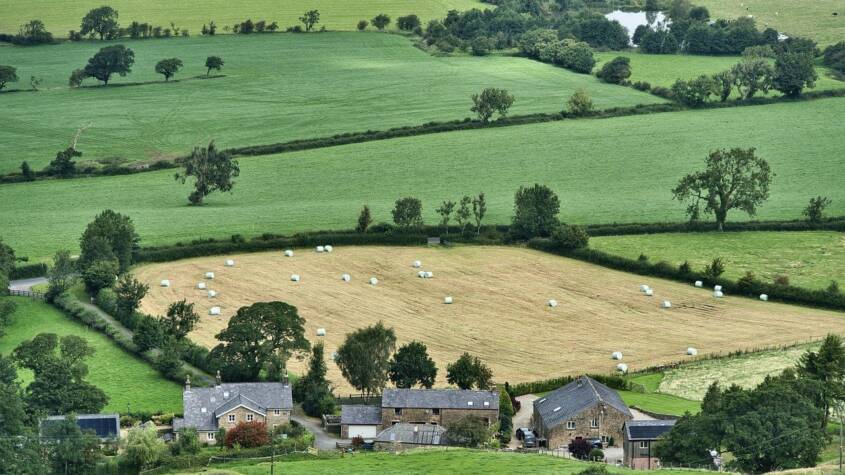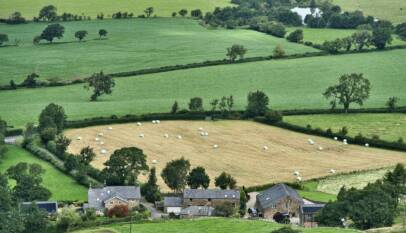
Farms in Ontario play a crucial role in the province’s economy and culture. With diverse agricultural production ranging from grains to fruits and vegetables, Ontario is one of Canada’s largest and most significant farming regions. This rich agricultural landscape not only supports local communities but also contributes to the country’s food supply.
The province is home to thousands of farms, each with unique practices and specialties. Many operate using innovative techniques that promote sustainability and environmental responsibility. This commitment to modern farming ensures that Ontario continues to thrive in an increasingly competitive agricultural sector.
Exploring farms in Ontario offers insights into both the traditional and the cutting-edge methods that define the industry today. Visitors can discover the importance of agriculture to the local economy and appreciate the hard work that goes into producing food for the community and beyond.
Agriculture in Ontario
Agriculture in Ontario plays a significant role in the economy and food production. The province’s diverse climatic zones and soil types support a wide variety of crops and livestock operations. Regulatory frameworks guide farming practices, ensuring sustainability and food safety.
Climatic Zones and Soil Types
Ontario features several climatic zones, primarily the humid continental climate. This climate varies, with southern regions experiencing warmer temperatures and longer growing seasons.
Key soil types include:
- Chernozem: Rich, dark soil prevalent in southern Ontario, suitable for growing grains.
- Podzol: Found in northern areas, often requiring additional amendments for productive farming.
These soil types, combined with varying rainfall patterns, affect agricultural productivity across the province. Farmers adapt by selecting suitable crops based on local conditions.
Key Crops and Livestock
Ontario is a major producer of various crops. Notable crops include:
- Corn: One of the leading crops, widely used for animal feed and biofuel.
- Soybeans: A significant cash crop, utilized in oil production and animal feed.
- Wheat: Grown primarily for human consumption and export.
In terms of livestock, Ontario is known for:
- Dairy Cattle: The top sector, contributing significantly to the dairy industry.
- Poultry and Eggs: A major part of the livestock production, satisfying both domestic and international markets.
This diversity ensures a robust agricultural sector capable of meeting consumer demands.
Agricultural Policy and Regulation
Ontario’s agricultural landscape is shaped by various policies and regulations aimed at supporting farmers. The Ontario Ministry of Agriculture, Food, and Rural Affairs (OMAFRA) oversees regulatory frameworks.
Key aspects include:
- Environmental Standards: Regulations promote sustainable farming practices to protect land and water resources.
- Food Safety Guidelines: Established protocols ensure safe food production and handling.
Additionally, government programs provide financial support and resources, aiding farmers in adopting new technologies and practices. This structured approach helps maintain the stability and sustainability of Ontario’s agricultural sector.
Sustainability and Innovation
Farms in Ontario are increasingly embracing sustainability and innovation to enhance productivity while preserving the environment. These approaches utilize modern technology and eco-friendly practices to ensure long-term viability.
Technological Advancements
Farmers in Ontario are adopting various technological advancements to boost efficiency and sustainability. Precision agriculture is one key innovation that employs GPS and data analytics to optimize resource usage. This technology allows for targeted irrigation, fertilization, and pest control, minimizing waste.
In addition, smart farming technologies, such as drone monitoring and automated machinery, enhance the ability to assess crop health and manage operations efficiently. The integration of sensors and IoT (Internet of Things) devices helps farmers make real-time decisions, leading to increased yields and reduced impact on the environment.
Organic Farming Practices
Organic farming has gained traction across Ontario as a viable method for sustainable agriculture. Farmers focus on using natural fertilizers, crop rotation, and integrated pest management to enhance soil health and biodiversity.
By avoiding synthetic chemicals, organic practices promote a healthier ecosystem. Additionally, many farmers are participating in certification programs, which not only enhances marketability but also improves consumer trust. Growing demand for organic products has incentivized more farmers to adopt these practices, benefiting both the environment and local economies.
British Virgin Islands Company Registration Guide for 2025 Compliance and Benefits
The British Virgin Islands Company Registration process is straightforward, efficient, and…








